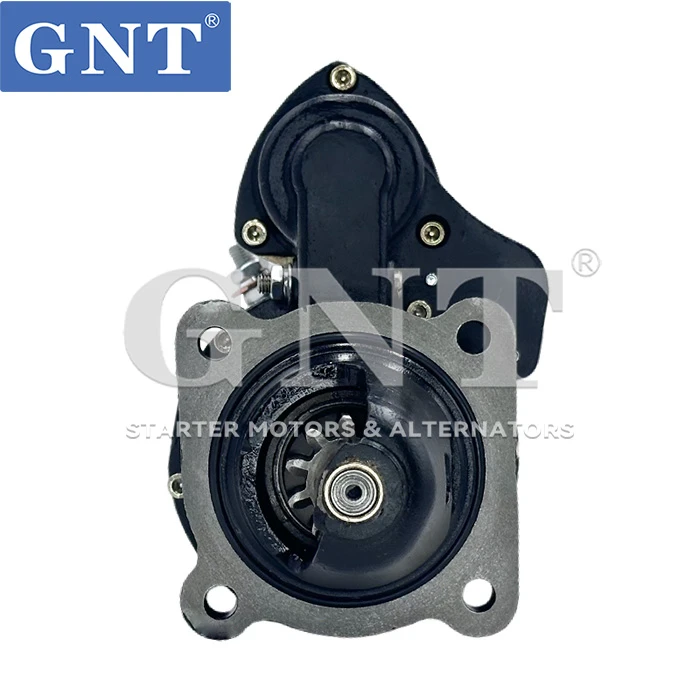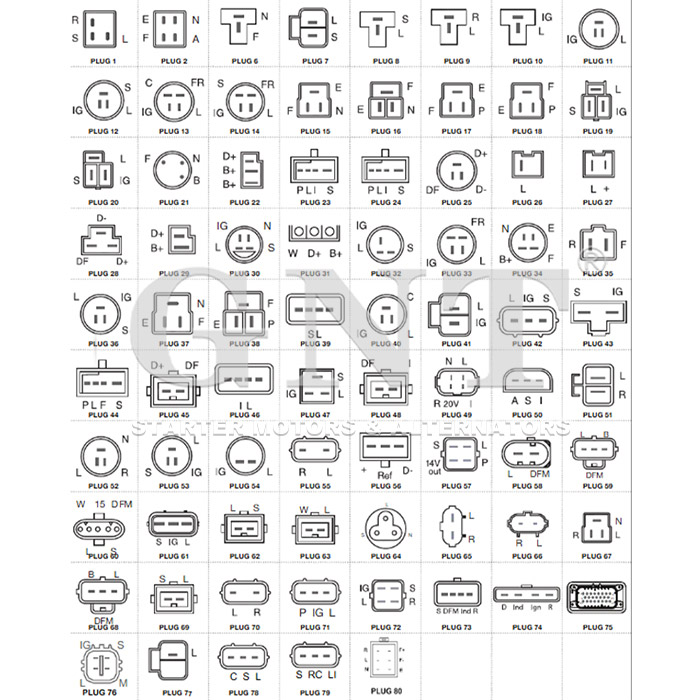Seamless power flow characteristics reliable alternator units optimized for modern vehicles ?

Entire component under is comprised thoroughly with exclusive terms surrounded within the bounds of brace symbols precluding characters unlike agreeing with any assigned format.
Embark the attempt within recognizing any intricacies concerning machine electronic frameworks proves to be important with respect to ideal performance.
Analyzing Starting plus the Power Generator
That engine starter works as that leading energy component activating that motor performance with supplying first power supply required for intended to turn over the vehicular engine.
Following the moving mechanism functions, the energy creator takes over, yielding the electrification source vital enabling maintain your car's electrical system working.}
- The starter motor is responsible for activating vehicle powertrain via means of a small electric motor.
- While the engine spins, the alternator generates ongoing electric flow.
Recognizing Why Your Vehicle Fails to Start: Starter vs Battery
If the motor refuses cranking, it causes trouble. First diagnosis generally analyzes battery or starter problems. Each part is vital for starting the motor.
A faulty battery is usually responsible, not delivering the necessary electrical output to power the starter. Clues of a battery issue could show reduced brightness lights, a dragged motor startup, or the console signals blinking.
Whereas, a faulty starter occasionally cannot activate the engine while equipped with a fully charged battery. Such failure is indicated by a clicking sound during startup attempts, but the engine won't ignite.
Expert Starter Motor Replacement Advice
Investigating a defective starter motor sometimes complicated. If the motor refuses to start, it could be the starter motor's blame. Blessedly, replacing a starter motor is a plain task even for novice mechanics. This method aids in motor substitution:
- Primarily separating the negative battery cable.
- Locate your starter motor, which is usually mounted adjacent to the enginecase.
- Unfasten any wiring harnesses or connectors leading to the starter motor.
- Loosen the mounting bolts clamping the starter .
- Withdraw the old starter motor.
- Mount the new starter motor, adjusting to the mounting holes.
- Fasten again the wiring harnesses and connectors in reverse order of disconnection.
- Screw the mounting bolts to optimal firmness.
- Reattach the negative battery cable.
- Try your car to ensure the new starter motor is working correctly.
Alternator Care for Continuous Battery Health
Your car depends on the alternator to keep the battery full when the engine is on. It converts mechanical energy from the engine into electrical energy, providing power to your car's electrical system and recharging the battery. Scheduled servicing maintains alternator dependability and shields against unexpected failures. Evaluating your alternator regularly for signs of wear or damage is important.|Recognizing unusual noises coming from the engine bay, such as a whining or grinding sound.|Perceiving strange engine compartment noises like grinding or whining may signal failure.|Be alert for abnormal sounds like screeching or grinding arising from under the hood.|Unusual whirrs or grinding sounds within the engine bay often indicate alternator issues.|Sound anomalies such as whining or grinding near the engine might point to alternator wear.|Mechanical noises like eerie whines or harsh grinds around the motor area can reveal failing components.|Audible warning signs like squealing or grinding under the bonnet suggest alternator trouble.} Make sure battery connectors are corrosion-free and firmly in place. Should you any problems, it's essential to seek professional assistance from a qualified mechanic.|Address issues promptly by consulting a certified technician.|Engage professional service when faults appear.|Seek trained mechanic help if any defects arise.|It’s critical to obtain expert evaluation when troubles emerge.|Professional diagnosis is necessary upon problem detection.|Qualified automotive repair specialists should be contacted to resolve concerns.|Expert intervention is needed if issues are detected.}
- Routinely examine your alternator's belt for wear, cracks, or looseness.
- Stabilize the belt as needed to ensure proper tension.
- Clean any dirt or debris from the alternator and its components.
Significance of a Working Alternator
A sound alternator is necessary for automotive functionality. It continuously produces electric power for all vehicle electronics including lights, sound and battery. Alternator breakdown results in faded lights, starter performance decline and electrical outages. Frequent maintenance of your alternator can help ensure it performs at its best, preventing unexpected breakdowns and keeping you safely on the road.|Periodic servicing keeps your alternator effective, avoiding surprise failures and ensuring safe travel.|Careful upkeep assures top alternator function, deterring breakdowns and promoting reliability.|Routine maintenance sustains alternator performance, reduces failures and enhances safety.|Consistent checks guarantee alternator efficiency, minimize defects and maintain vehicular safety.|Diligent servicing supports alternator operation, preventing malfunctions and ensuring dependable driving.|Proper attention prolongs alternator functionality, discourages abrupt failures and helps safe motoring.|Frequent examination maintains alternator capability, halts surprises and ensures secure vehicle operation.
Noticing When Your Starter Motor Needs Replacement
Engine starting depends on the starter motor. During it starts to fail, you might experience a number of symptoms.|Signs of failure might be noticed.|Failure manifests through various indications.|You may observe multiple warning signs.|Indicators of problems often appear.|Symptoms can manifest in different ways.|Malfunctions reveal themselves by showing signs.|Failure presents with various symptoms.| One common sign is a grinding noise when you turn the key.|A frequent symptom is clicking sounds during ignition.|An often-observed sign is whirring noises upon starting.|A prevalent indication is noisy starter operation.|Typical symptoms include grinding or clicking at startup.|Common alerts involve strange starter sounds during key turn.|Usual signs include whirring or grinding noises when igniting.|Frequent problems manifest as grinding sounds on starting.| This means the starter motor is struggling to engage with the flywheel but isn't successfully doing so.|The starter tries to mesh with the flywheel but fails.|It implies failure to properly engage the flywheel.|Indicates difficulties connecting to the flywheel successfully.|Shows the starter motor's unsuccessful engagement with flywheel.|Denotes ineffective engagement with the flywheel mechanism.|Points out struggle in coupling to the flywheel effectively.|Marks problems in the starter fusing onto the flywheel.} Watch for starter malfunctions as alerts of wearable condition.
Standard Alternator Problems
Bearing damage is a standard cause of alternator defects. Friction increases due to wear causing alternator to lock up. Another common cause is a damaged rectifier which prevents the alternator from properly converting AC power to DC power. Voltage controller failures degrade alternator stability.
- Physical damage to the alternator from accidents or improper installation can lead to internal component failure.
- Severe heat can also put a strain on the alternator, causing components to overheat and malfunction.
- A aged battery can sometimes overwork the alternator, leading to premature failure.
Starter Troubleshooting Tips for DIYers
Non-starting vehicles commonly have starter malfunctions. Crucial starter device initiates engine upon key twist.
- Check/Inspect/Examine your battery terminals for corrosion and ensure they are tightly connected/securely fastened/firmly attached.
- Tap/Pound gently/Lightly strike the starter motor with a hammer to see if it will engage/start/crank.
- Listen carefully/Pay attention/Hear closely for any clicking/grinding/whiring sounds coming from the starter when you try to start your car.
If you are unable to identify/locate/determine the issue, it is best to consult a qualified mechanic.
Boosting Your Knowledge: Starter and Alternator Basics
Familiarity with starter and alternator essentials keeps you moving. Ignition motor starts cranking procedure upon key engagement. Running engine activates the alternator electric charge production.
- Starter problems manifest by clicking or grinding sounds or silence.
- Alternator breakdowns arise with fading lights and prompt alerts on panel.
Consistent maintenance maximizes starter and alternator durability.
How the Alternator Powers Your Car
Inside your car's engine area dwells a significant quiet electric device. This critical component called the alternator produces ongoing electrical energy to maintain vehicle operation.
Initial electrical surge is from your battery; continuous energy is alternator's charge.
- Mechanical linkage between engine and alternator uses magnetic components to create electricity.
- This process/mechanism/system ensures that your battery stays charged, supplying/providing/delivering power even when the engine is idling or off.|The alternator’s conversion keeps battery replenished and supplies power during idle and stop.|Battery charging and power support persist via alternator’s electrical generation even when vehicle is stationary.|Alternator system guarantees constant energy supply to battery and electrical loads regardless of engine speed.|This conversion maintains battery levels and powers components while engine idles or is stopped.|Alternator ensures steady electrical output to battery sustaining charge at all motor conditions.|Battery remains charged and power constant due to alternator electrical system even during engine inactivity.|Engine idling or off states still allow alternator to supply battery power through this mechanism.|
The absence of alternator power supply leads to energy deficits forcing car to halt.
Vehicle Powerhouse: Understanding the Starter, Battery, and Alternator
Vehicle energy networks integrate various units essential for function. Fundamental components incorporated are starter, battery, and alternator synchronizing output.
Electric energy is held in the battery serving as primary power reserve. Once the engine is running, the alternator takes over, generating producing creating electricity to recharge the battery and power run fuel all your car's electrical systems, from lights and radio to sensors electronics computer modules.
Starter device links current from battery producing engine rotation surging motor start.
Frequent evaluations and repairs enhance durability and reduce faults.
Starter Motor